Donald Hall (1928- 2018) was one of the best and most popular American contemporary poets. He was a prolific writer of poetry, literature, biography, plays, textbooks, essays, children’s books, and journalism. His poetry speaks about ordinary people and things but delves deep under the surface to unveil mysteries and secrets in the world and in ourselves. He casts a somber, often ironic, plain spoken mood that makes us stop and reflect. Many of his themes are about rural living, New England, baseball, while others confront the issues of illness and death.
The Poetry Foundation wrote “Hall explores the longing for a more bucolic past and reflects an abiding reverence for Nature.” The New York Times wrote that “he found a universe of meaning in the apples, ox carts, and ordinary folk of his beloved rural New England. One of the leading poets of his generation.”
Billy Collins, U.S. Poet Laureate, wrote “Hall has long been placed in the Frostian tradition of the plain spoken rural poets. His reliance on simple, concrete diction and the no nonsense sequence of the declarative sentence gives his poems steadiness and imbues them with a tone of sincere authority. It is a kind of simplicity that succeeds in engaging the reader in the first three lines.”
Hall received degrees from both Harvard and Oxford, and he taught at the University of Michigan, Bennington College, and Stanford University. He was an editor of the Paris Review and the Poet Laureate of the United States in 2006. He received numerous awards, including the National Book Award, Guggenheim Fellowship, the Robert Frost Medal, and a Pulitzer Prize nomination.
Affirmation
To grow old is to lose everything.
Aging, everybody knows it.
Even when we are young,
we glimpse it sometimes, and nod our heads
when a grandfather dies.
Then we row for years on the midsummer
pond, ignorant and content. But a marriage,
that began without harm, scatters
into debris on the shore,
and a friend from school drops
cold on a rocky strand.
If a new love carries us
past middle age, our wife will die
at her strongest and most beautiful.
New women come and go. All go.
The pretty lover who announces
that she is temporary
is temporary. The bold woman,
middle-aged against our old age,
sinks under an anxiety she cannot withstand.
Another friend of decades estranges himself
in words that pollute thirty years.
Let us stifle under mud at the pond’s edge
and affirm that it is fitting
and delicious to lose everything.
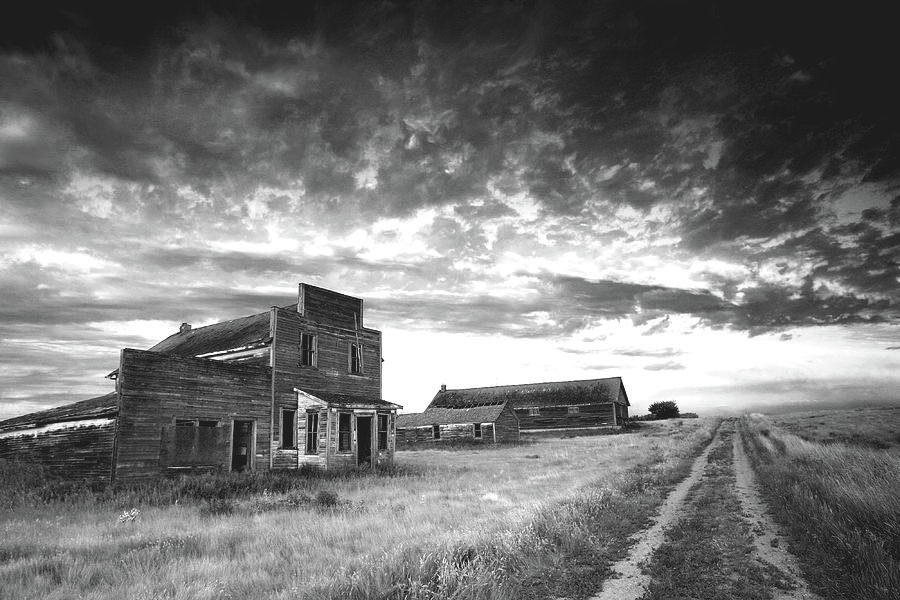
Names of Horses
All winter your brute shoulders strained against collars, padding
and steerhide over the ash hames, to haul
sledges of cordwood for drying through spring and summer,
for the Glenwood stove next winter, and for the simmering range.
In April you pulled cartloads of manure to spread on the fields,
dark manure of Holsteins, and knobs of your own clustered with oats.
All summer you mowed the grass in meadow and hayfield, the mowing machine
clacketing beside you, while the sun walked high in the morning;
and after noon’s heat, you pulled a clawed rake through the same acres,
gathering stacks, and dragged the wagon from stack to stack,
and the built hayrack back, uphill to the chaffy barn,
three loads of hay a day from standing grass in the morning.
Sundays you trotted the two miles to church with the light load
a leather quartertop buggy, and grazed in the sound of hymns.
Generation on generation, your neck rubbed the windowsill
of the stall, smoothing the wood as the sea smooths glass.
When you were old and lame, when your shoulders hurt bending to graze,
one October the man, who fed you and kept you, and harnessed you every morning,
led you through corn stubble to sandy ground above Eagle Pond,
and dug a hole beside you where you stood shuddering in your skin,
and lay the shotgun’s muzzle in the boneless hollow behind your ear,
and fired the slug into your brain, and felled you into your grave,
shoveling sand to cover you, setting goldenrod upright above you,
where by next summer a dent in the ground made your monument.
For a hundred and fifty years, in the Pasture of dead horses,
roots of pine trees pushed through the pale curves of your ribs,
yellow blossoms flourished above you in autumn, and in winter
frost heaved your bones in the ground – old toilers, soil makers:
O Roger, Mackerel, Riley, Ned, Nellie, Chester, Lady Ghost.
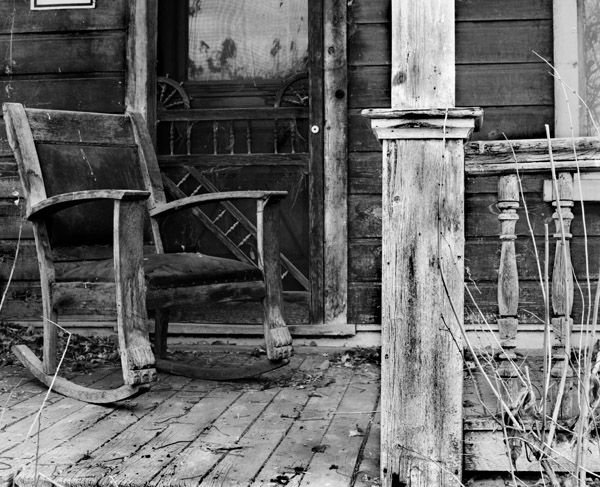
Gold
Pale gold of the walls, gold
of the centers of daisies, yellow roses
pressing from a clear bowl. All day
we lay on the bed, my hand
stroking the deep
gold of your thighs and your back.
We slept and woke
entering the golden room together,
lay down in it breathing
quickly, then
slowly again,
caressing and dozing, your hand sleepily
touching my hair now.
We made in those days
tiny identical rooms inside our bodies
which the men who uncover our graves
will find in a thousand years,
shining and whole.
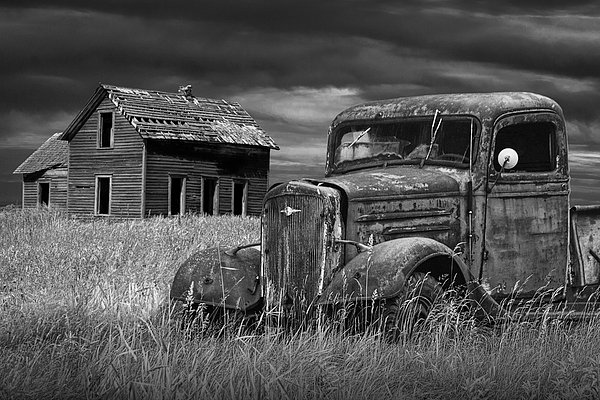
Sudden Things
A storm was coming, that was why it was dark. The wind was blowing the fronds of the palm trees off. They were maples. I looked out the window across the big lawn. The house was huge, full of children and old people. The lion was loose. Either because of the wind, or by malevolent human energy, which is the same thing, the cage had come open. Suppose a child walked outside!
A child walked outside. I knew that I must protect him from the lion. I threw myself on top of the child. The lion roared over me. In the branches and the bushes there was suddenly a loud crackling. The lion cringed. I looked up and saw that the elephant was loose!
The elephant was taller than the redwoods. He was hairy like a mammoth. His tusks trailed vines. Parrots screeched around his head. His eyes rolled crazily. He trumpeted. The ice-cap was breaking up!
The lion backed off, whining. The boy ran for the house. I covered his retreat, locked all the doors and pulled the bars across them. An old lady tried to open a door to get a better look. I spoke sharply to her, she sat down grumbling and pulled a blanket over her knees.
Out of the window I saw zebras and rattlesnakes and wildebeests and cougars and woodchucks on the lawns and in the tennis courts. I worried how, after the storm, we would put the animals back in their cages, and get to the mainland.
Distressed Haiku
In a week or ten days
the snow and ice
will melt from Cemetery Road.
I’m coming! Don’t move!
Once again it is April.
Today is the day
we would have been married
twenty-six years.
I finished with April
halfway through March.
You think that their
dying is the worst
thing that could happen.
Then they stay dead.
Will Hall ever write
lines that do anything
but whine and complain?
In April the blue
mountain revises
from white to green.
The Boston Red Sox win
a hundred straight games.
The mouse rips
the throat of the lion
and the dead return.
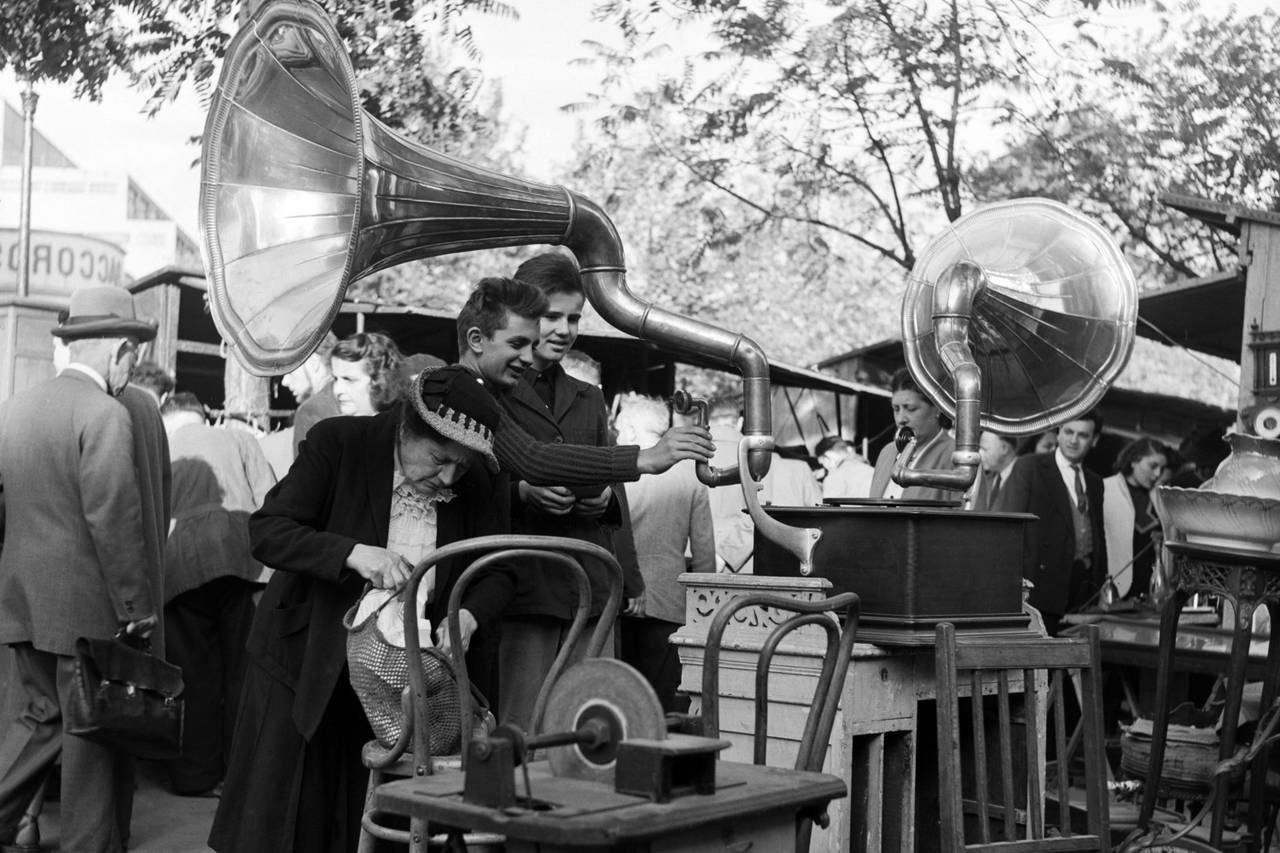
Ox Cart Man
In October of the year,
he counts potatoes dug from the brown field,
counting the seed, counting
the cellar’s portion out,
and bags the rest on the cart’s floor.
He packs wool sheared in April, honey
in combs, linen, leather
tanned from deerhide,
and vinegar in a barrel
hoped by hand at the forge’s fire.
He walks by his ox’s head, ten days
to Portsmouth Market, and sells potatoes,
and the bag that carried potatoes,
flaxseed, birch brooms, maple sugar, goose
feathers, yarn.
When the cart is empty he sells the cart.
When the cart is sold he sells the ox,
harness and yoke, and walks
home, his pockets heavy
with the year’s coin for salt and taxes,
and at home by fire’s light in November cold
stitches new harness
for next year’s ox in the barn,
and carves the yoke, and saws planks
building the cart again.
Wolf Knife
In the mid August, in the second year
of my First Polar Expedition, the snow and ice of winter
almost upon us, Kantiuk and I
attempted to dash the sledge
along Crispin Bay, searching again for relics
of the Frankline Expedition. Now a storm blew,
and we turned back, and we struggled slowly
in snow, lest we depart land and venture onto ice
from which a sudden fog and thaw
would abandon us to the Providence
of the sea.
Near nightfall I thought I heard snarling behind us.
Kantiuk told me that two wolves, lean as the bones of a wrecked ship,
had followed us the last hour, and snapped their teeth
as if already feasting.
I carried the one cartridge only
in my riffle, since, approaching the second winter,
we rationed stores.
As it turned dark,
we could push no further, and made
camp in a corner of ice hummocks,
and the wolves stopped also, growling
just past the limits of vision,
coming closer, until I could hear
the click of their feet on ice. Kantiuk laughed
and remarked that the wolves appeared to be most hungry.
I raised my rifle, prepared to shoot the first that
ventured close, hoping
to frighten the other.
Kantiuk struck my rifle down and said again
that the wolves were hungry, and laughed.
I feared that my old companion
was mad, here in the storm, among ice-hummocks,
stalked by wolves. Now Kantiuk searched
in his pack, and extracted
two knives–turnoks, the Innuits called them–
which by great labor were sharpened, on both sides,
to the sharpness like the edge of a barber’s razor,
and approached our dogs
and plunged both knives
into the body of our youngest dog
who had limped all day.
I remember that I consider turning my rifle on Kantiuk
as he approached, then passed me,
carrying knives red with the gore of our dog–
who had yowled, moaned, and now lay
expired, surrounded
by curious cousins and uncles, possibly
hungry–and he trusted the knives
handle-down in the snow.
Immediately after he left the knives, the vague, gray
shape of wolves
turned solid, out of the darkness and the snow, and set ravenously
to licking blood from the honed steel.
the double-edge of the knives
so lacerated the tongues of the starved beasts
that their own blood poured
copiously forth
to replenish the dog’s blood, and they ate
more furiously than before, while Knatiuk laughed,
and held his sides
laughing.
And I laughed also, perhaps in relief that Providence had delivered us
yet again, or perhaps–under conditions of extremity–
far from Connecticut–finding there creatures
acutely ridiculous, so avid
to swallow their own blood. First one, and then the other
collapsed, dying,
bloodless in the snow black with their own blood,
and Kantiuk retrieved
his turnoks, and hacked lean meat
from the thigh of the larger wolf, which we ate
grateful, blessing the Creator, for we were hungry.
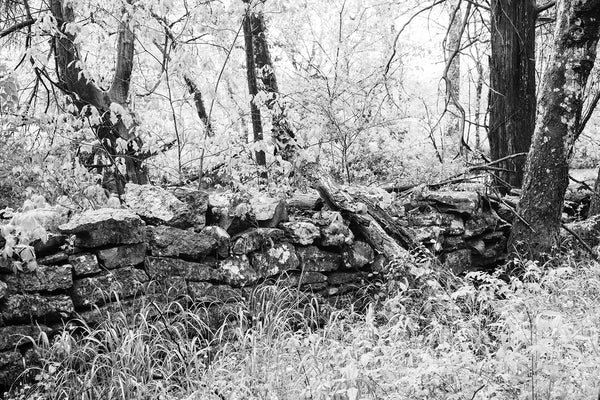
The Things
When I walk in my house I see pictures,
bought long ago, framed and hanging
—de Kooning, Arp, Laurencin, Henry Moore—
that I’ve cherished and stared at for years,
yet my eyes keep returning to the masters
of the trivial—a white stone perfectly round,
tiny lead models of baseball players, a cowbell,
a broken great-grandmother’s rocker,
a dead dog’s toy—valueless, unforgettable
detritus that my children will throw away
as I did my mother’s souvenirs of trips
with my dead father, Kodaks of kittens,
and bundles of cards from her mother Kate.
The Painted Bed
Even when I danced erect
by the Nile’s garden
I constructed Necropolis.
Ten million fellaheen cells
of my body floated stones
to establish a white museum.
Grisly, foul, and terrific
is the speech of bones,
thighs and arms slackened
into desiccated sacs of flesh
hanging from an armature
where muscle was, and fat.
‘I lie on the painted bed
diminishing, concentrated
on the journey I undertake
to repose without pain
in the palace of darkness,
my body beside your body.
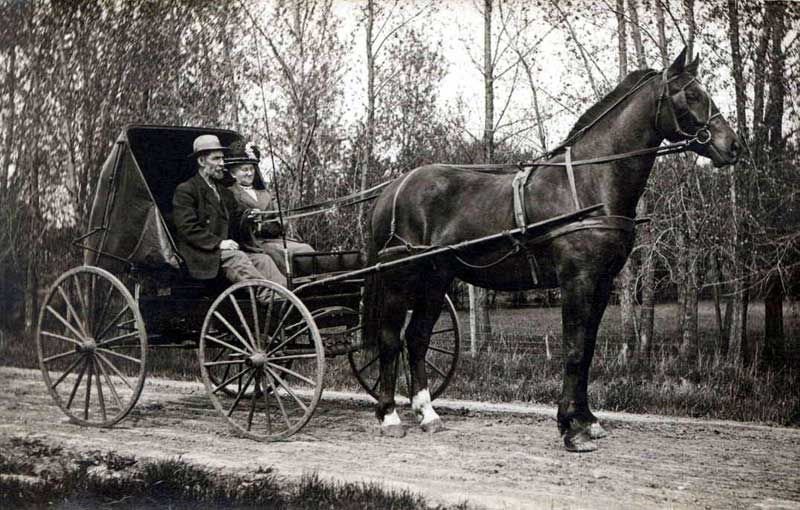
The Seventh Inning
1. Baseball, I warrant, is not the whole
occupation of the aging boy.
Far from it: There are cats and roses;
there is her water body. She fills
the skin of her legs up, like water;
under her blouse, water assembles,
swelling lukewarm; her mouth is water,
her cheekbones cool water; water flows
in her rapid hair. I drink water
2. from her body as she walks past me
to open a screen door, as she bends
to weed among herbs, or as she lies
beside me at five in the morning
in submarine light. Curt Davis threw
a submarine ball, terrifying
to right-handed batters. Another
pleasure, thoroughly underrated,
is micturition, which is even
3. commoner than baseball. It begins
by announcing itself more slowly
and less urgently than sexual
desire, but (confusingly) in the
identical place. Ignorant men
therefore on occasion confuse beer-
drinking with love; but I have discussed
adultery elsewhere. We allow
this sweet release to commence itself,
4. addressing a urinal perhaps,
perhaps poised over a white toilet
with feet spread wide and head tilted back:
oh, what’delicious permission! what
luxury of letting go! what luxe
yellow curve of mildest ecstasy!
Granted we may not compare it to
poignant and crimson bliss, it is as
voluptuous as rain all night long
5. after baseball in August’s parch. The
jade plant’s trunk, as thick as a man’s wrist,
urges upward thrusting from packed dirt,
with Chinese vigor spreading limbs out
that bear heavy leaves—palpable, dark,
juicy, green, profound: They suck, the way
bleacher fans claim inhabitants of
box seats do. The Fourth of July we
exhaust stars from sparklers in the late
6. twilight. We swoop ovals of white-gold
flame, making quick signatures against
an imploding dark. The five-year-old
girl kisses the young dog goodbye and
chases the quick erratic kitten.
When she returns in a few years as
a tall shy girl, she will come back to
a dignified spreading cat and a
dog ash-gray on the muzzle. Sparklers
7. expel quickly this night of farewell:
If they didn’t burn out, they wouldn’t
be beautiful. Kurt, may I hazard
an opinion on expansion? Last
winter meetings, the major leagues (al-
ready meager in ability,
scanty in starting pitchers) voted
to add two teams. Therefore minor league
players will advance all too quickly,
8. with boys in the bigs who wouldn’t have
made double-A forty years ago.
Directors of player personnel
will search like poets scrambling in old
notebooks for unused leftover lines,
but when was the last time anyone
cut back when he or she could expand?
Kurt, I get the notion that you were
another who never discarded
9. anything, a keeper from way back.
You smoked cigarettes, in inflation-
times rolled from chopped-up banknotes, billions
inhaled and exhaled as cancerous
smoke. When commerce woke, Men was awake.
If you smoked a cigar, the cigar
band discovered itself glued into
collage. Ongoing life became the
material of Kurtschwittersball.



